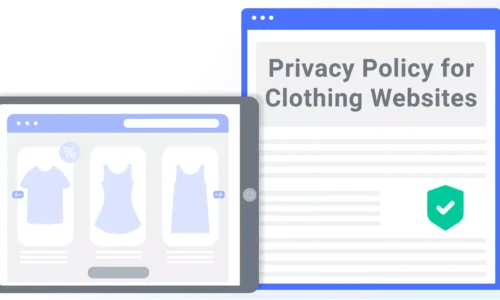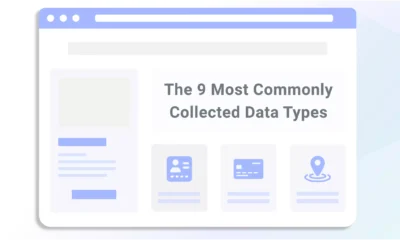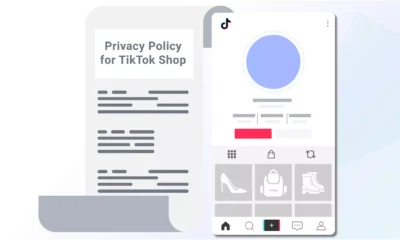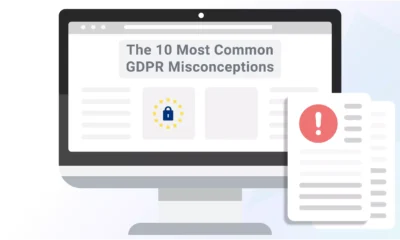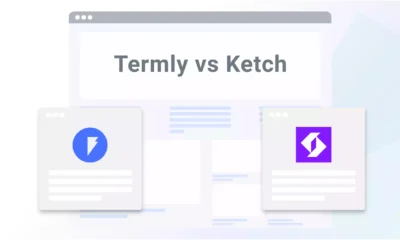Clothing businesses operating online need a privacy policy informing visitors what data you collect, how it’s used, and the rights they retain over their information.
Below, I explain what information should go into a privacy policy for clothing websites, the laws that impact it, where to post it, and provide solutions to help you easily make your own.
- Creating a Clothing Website Privacy Policy
- Does Your Clothing Website Need a Privacy Policy?
- Which Privacy Laws Affect Clothing Websites
- What To Include in Your Clothing Website's Privacy Policy
- Tips for Making a Good Clothing Website Privacy Policy
- Where To Put Your Clothing Website's Privacy Policy
- Why Data Privacy Is Important for Clothing Websites
- Summary
Creating a Clothing Website Privacy Policy
You can make a privacy policy for your clothing site by using a managed solution, a template, or writing one yourself.
Managed Solution
No matter what type of website you own, using a managed solution is the easiest way to make a privacy policy.
For example, Termly offers an easy-to-use Privacy Policy Generator that’s backed by our legal team and data privacy experts.
It allows you to make a readable, comprehensive privacy policy for your clothing website in minutes and corresponds to the legal requirements of over 26 laws from around the world.
Our legal team automatically updates the generator to accommodate applicable new legal requirements when necessary.
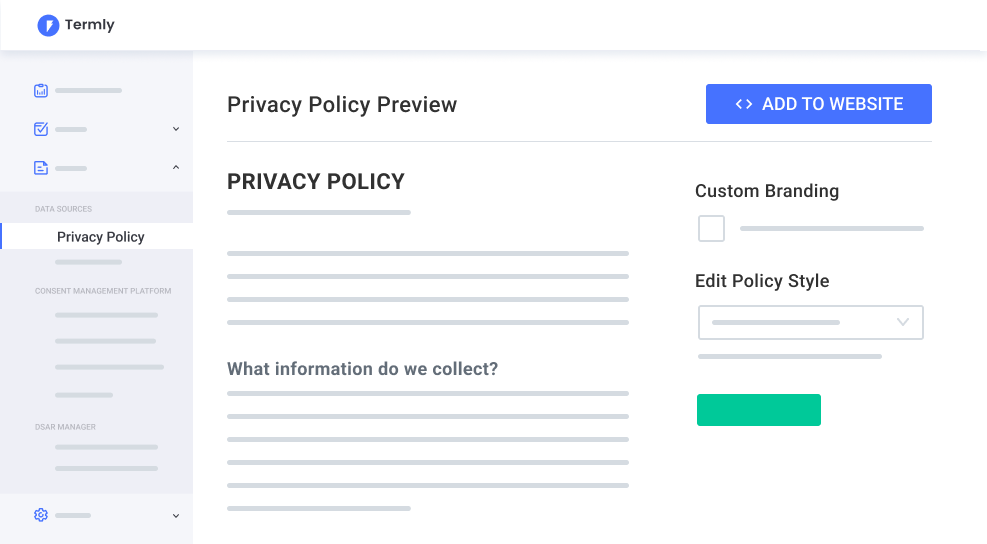
In addition, Termly is committed to protecting the privacy of our users, too. With Termly, you get privacy solutions you can genuinely trust.
Template
You can also use a privacy policy template to make one of these essential legal policies for your clothing site.
Templates are already properly formatted for you and include some basic language, which helps make finalizing your policy much easier.
Termly offers users an excellent template for constructing a comprehensive privacy policy for websites that includes clauses to help you meet the requirements of several privacy laws from around the globe.
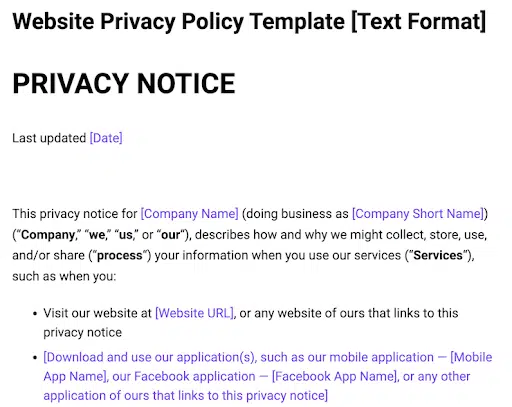
You can download Termly’s basic template, apply it to the specific needs of your online clothing retail business, and quickly create a detailed clothing website privacy policy.
Do It Yourself
If you want total control over the creation process, you can write your own privacy policy.
However, taking a DIY-approach is time-consuming and requires extensive legal knowledge.
You should only consider it if you know what you’re doing, have legal experience, and are knowledgable about all data your business processes and uses.
Does Your Clothing Website Need a Privacy Policy?
Yes, having a privacy policy is essential for online clothing businesses because it helps you align with privacy laws, meet third-party service requirements, and builds consumer trust.
Legal Requirements
Having a privacy policy is required by data privacy laws that exist across the globe.
For example, laws like the General Data Protection Regulation (GDPR) and the California Online Privacy Protection Act (CalOPPA) have broad thresholds and apply to most businesses.
They both require businesses to present users with a meaningful privacy policy that explains what data they collect, why, and how it’s used.
Failing to comply with applicable laws could lead to large fines, damage to your brand reputation, civil lawsuits, and possible jail time.
Third-Party Requirements
In additional to legal requirements, several private third-party partners also typically require clear privacy policies.
For example, Apple requires any company that uses its apps or creates an app for iOS platforms, to have a clear privacy policy. Google is another major third-party platform that requires apps on its operating systems to have a comprehensive privacy policy in place.
Losing the ability to partner with entities like Apple and Google due to a lack of a clear privacy policy would devastate your business’s ability to compete in the contemporary marketplace.
Build Consumer Trust
Having a privacy policy is necessary if you want to build trust with your consumers.
According to recent data privacy statistics, consumers want to know if you’re collecting their data and how you’re using it.
81% of users say the potential risks they face from companies collecting data outweigh the benefits. (Pew Research Center)
Adding an honest, up-to-date privacy policy to your site keeps your users properly informed, which reassures them that you respect their personal data.
Which Privacy Laws Affect Clothing Websites
Clothing websites can be affected by any existing data privacy law because they are typically for-profit and rely on collecting personal data for marketing, completing transactions, and analytics purposes.
Any of the following laws could apply to your clothing site:
- General Data Protection Regulation (GDPR)
- Australia Privacy Act of 1988
- California Consumer Privacy Act (CCPA)
- Children’s Online Privacy Protection Act (COPPA)
- California Online Privacy Protection Act (CalOPPA)
- Personal Information Protection and Electronic Documents Act (PIPEDA)
- Virginia Consumer Data Protection Act (VCDPA)
What To Include in Your Clothing Website’s Privacy Policy
Your clothing website’s privacy policy should include the following clauses to be legally and ethically sufficient.
What Data You Collect
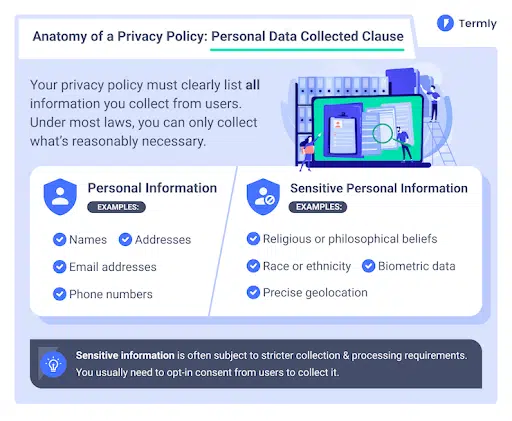
Your privacy policy should include a list of all personal data your clothing site collects from visitors, which may include:
- Full names
- Email addresses
- Shipping addresses
- Birthdates
- Payment details
Why You Collect Data
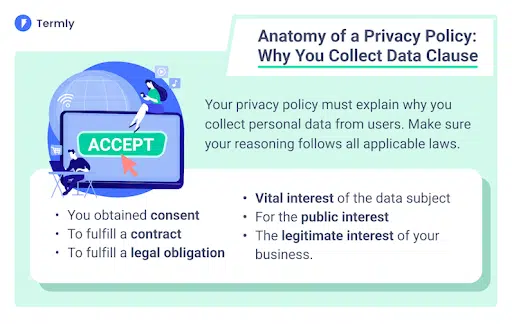
Your privacy policy must disclose to consumers your purpose or reason for collecting personal data. Under laws like the GDPR, this is called your legal basis.
Children’s Data Clause
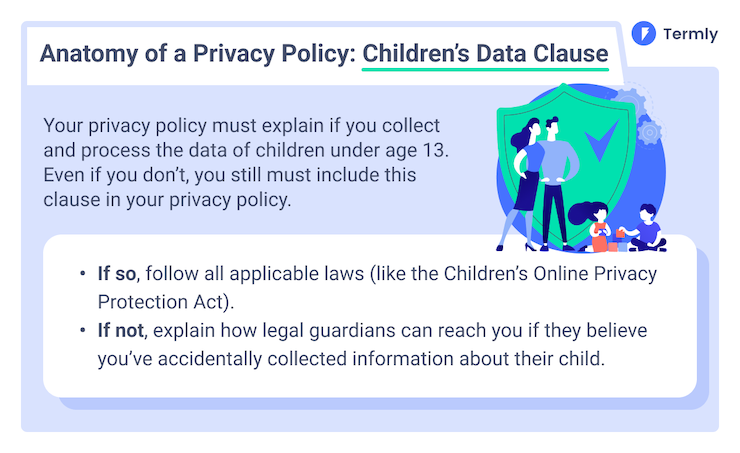
Your privacy policy must have a clause that addresses children’s data.
In the U.S., if your company sells children’s clothing, you must follow children protection laws like COPPA.
If you don’t purposefully target minors, you must explain how parents and legal guardians can contact you if they believe you’ve accidentally collected data about their child(ren).
Data Security Clause
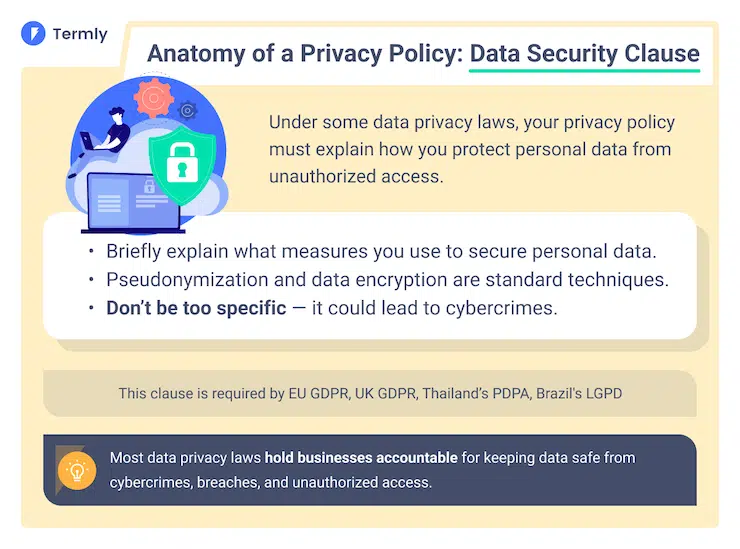
Your privacy policy should explain how you keep personal data safe from unauthorized access and data breaches, as required by data privacy laws.
As a clothing retailer, you’ll need robust privacy protections for financial data, including banking and credit card information.
Your privacy policy should inform users of the measures you take to protect such financial data and any other general measures to protect less sensitive user data.
If You Share Personal Data
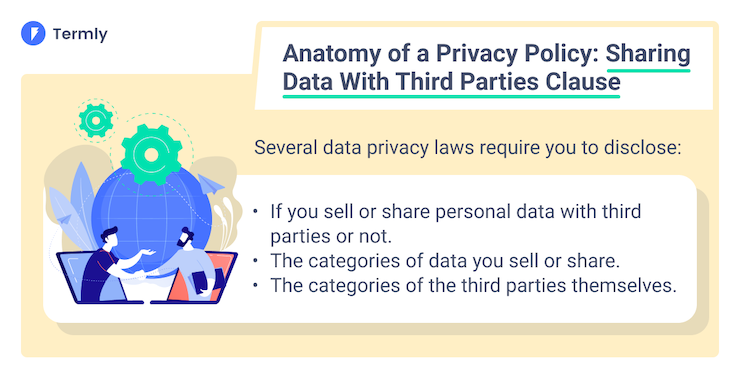
Your clothing company’s privacy policy must inform your customers whether you share such data with third parties and, if so, what data you are sharing, as required by laws like the GDPR, the CCPA, and others.
Many clothing retailers share customer data with third-party companies for purposes such as analytics, marketing, sales leads, and customer service improvement.
Cookies and Other Trackers
![]()
You must disclose any use of cookies in your privacy policy because cookies include personal information as defined by most privacy laws, including the GDPR and the VCDPA.
Keep this clause brief and link to your separate in-depth cookie policy statement.
Online clothing retailers often use cookies and other online tracking technologies to track potential sales leads, optimize advertising, and target promotions.
Consumer Rights
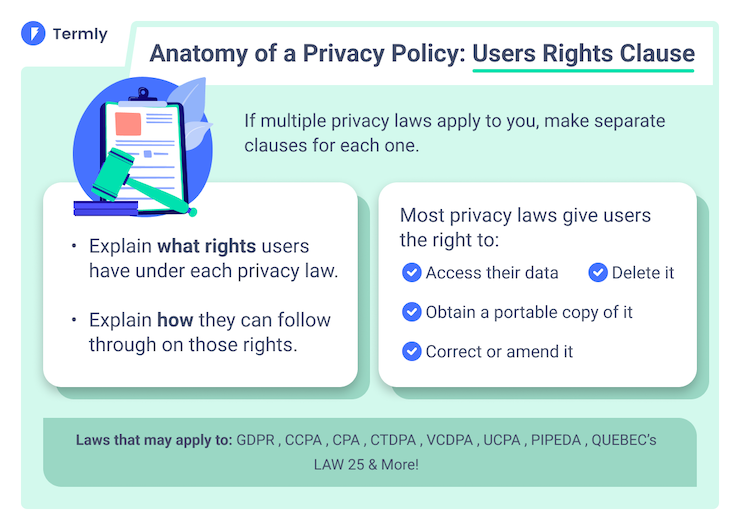
Most privacy laws require businesses to explain in a privacy policy what rights consumers have over their data and how to act on those rights.
To align with laws such as GDPR and the CCPA, your clothing company’s privacy policy should detail how users can access, correct, or delete their data from your site.
You may also want to include a link to a Data Subject Access Request form.
Contact Information
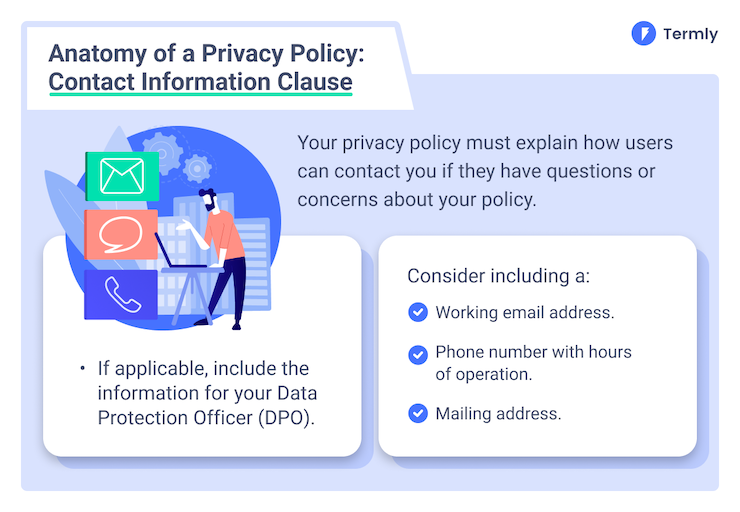
You must include your company contact information in your privacy policy, as required by laws like the GDPR.
Provide an active email address, a working phone line, or a mailing address.
Tips for Making a Good Clothing Website Privacy Policy
Generally, a good privacy policy for clothing websites will answer the classic five basic questions of any good article: What, when, who, why, and how?
In the case of a clothing business, these questions refer to:
- What data your clothing website collects
- When you collect it
- Who you may be sharing it with
- What purpose this collection serves
- How users can opt-out of data collection
Legal requirements and general good practices dictate that you should also include information about what kinds of data you may collect from visitors to your online clothing store, like financial data, mobile data, or data involving third parties.
Where To Put Your Clothing Website’s Privacy Policy
Depending upon the layout of your online clothing store, you will likely have a few different options on where to put your privacy policy.
Most websites put a link to the policy at the footer of the website. Another increasingly common practice is to include the privacy policy link on a popup window that asks users to accept cookies and other tracking technologies.
Regardless of where you put your website’s privacy policy, you should remember a few essential requirements:
- First, any clothing website privacy policy must be clearly displayed and accessible to everyone on your website or app.
- Second, it must be labeled as a “privacy policy” to avoid any potential confusion or lack of clarity.
- Last, the policy must be clear and available for users to access before they share their data with the site.
In general, you should err on the side of clarity and simplicity when deciding where to place your privacy policy on your clothing website.
Why Data Privacy Is Important for Clothing Websites
In today’s world, online retailers must pursue all possible avenues on the internet to reach the largest possible share of customers, and clothing businesses are no exception.
Having a privacy policy for your clothing business is an essential building block for establishing trust between seller and buyer.
What clothes someone buys can reveal quite a bit about them, such as their body size, personal or cultural preferences, plans, potential life changes — such as buying wedding dresses or maternity clothes, and so on.
There are also critical personal data like credit card information and other banking and shipping details. When considering all this, a clothing business should have a clear and vigorous privacy policy to show its customers that they can trust it with their personal information.
Summary
When managing an online clothing business, consider the different legal requirements and update your privacy policy to meet all notification and transparency requirements.
With the excellent resources offered through Termly, you can easily create accurate, clear, and legally sound privacy policies for your clothing business with no extra hassle that legal requirements often bring.

